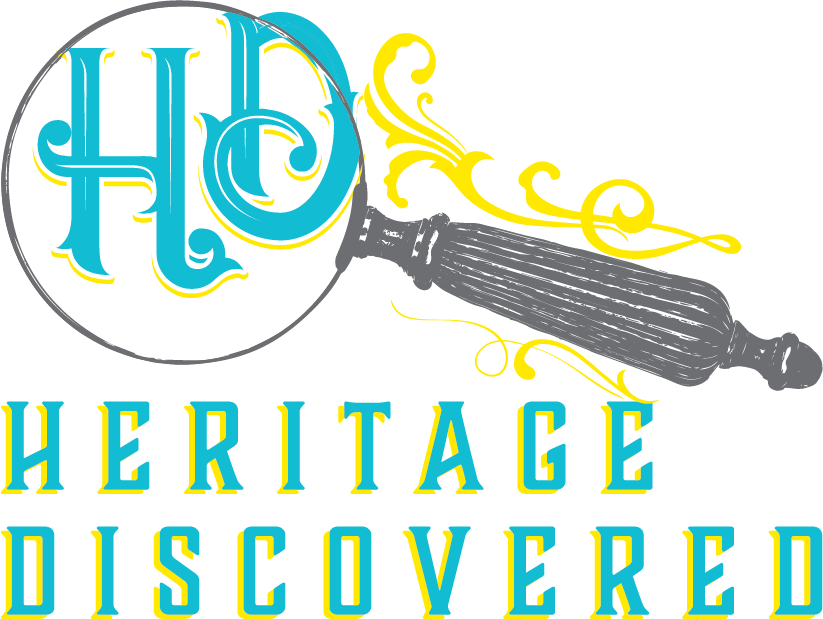How to Search for Your LGBTQ Ancestors
Updated June 4, 2021
*This post may have affiliate links, which means I may receive commissions if you choose to purchase through links I provide (at no extra cost to you). All opinions remain my own.
We all have people with different backgrounds in our family tree, from the everyday farmer to criminals, and yes, probably to LGBTQ ancestors as well.
Same sex relationships have always been around. But for many years, they were often hidden because of societal mores and legal issues.
We’re fortunate to now live in times where many recognize and accept the LGBTQ community. Lesbian, gay, bisexual, and transgender people today can be more open and have more rights.
And genealogy software has finally caught up with allowing data for same-sex couples.
More access to online resources means the ability to piece together more clues about an LGBT ancestor’s story that may have been hidden for decades.
It’s probably not obvious that an ancestor was LGBT, but the more you research them, you may start to get a sense that they may have been in a same sex relationship.
That said, LGBT genealogy research can definitely pose some challenges.
How do we go about identifying our LGBTQ ancestors, who may have lived at a time when homosexuality was illegal, or at the very least, was looked down upon?
And how can we respectfully uncover their stories and honor their experiences?
Related posts:
6 Common Genealogy Mistakes And How To Avoid Them
Why You Need to Use Libraries and Archives in Your Genealogy
What are some clues that an ancestor may have been LGBTQ?
When researching an ancestor you think may have been gay or lesbian, it’s even more critical to gather as much information as possible about their lives.
Then, like any other person you research, evaluate what you find both as a whole and piece by piece for clues.
What are some clues that an ancestor may have been LGBTQ?
1) They were never married. They could have also moved far from the rest of their family. Of course, never marrying or moving far from family doesn’t mean they were LGBTQ (and some were in heterosexual marriages), but it could be a hint.
They may have also had a “boarder” living with them in census records. Sometimes boarders were just boarders, but if they lived together for a long time, it could point to a relationship.
2) There were rumors in the family. Family members may say things like they had a “friend”, or maybe there are stories they were gay.
3) They’re hidden within the family. There might not be any photos or records for an ancestor because they were destroyed. Or, you have a relative that other family members won’t discuss at all. There could be many different reasons why someone isn’t discussed in a family, but being LGBTQ is a possibility.
Related posts:
Credit: torbakhopper, “The value of a match book collection : historical gay bars san francisco (2013)”. Used under Attribution 2.0 Generic (CC BY 2.0) License.
How do you research whether someone may have been LBGTQ?
Researching an LGBTQ family member can be difficult, but there’s some resources that may give more support for your theory.
1) Newspaper articles. Because homosexuality was a crime, those arrested often ended up being named in the newspapers. Obituaries could mention a “dear friend” or “longtime companion”, or even a roommate.
2) The same goes for court and prison records. These records can give details on what your ancestor was accused of and any punishments or fines.
3) Home sources. Letters and diaries may have clues about relationships. Ephemera like matchbooks from gay bars and other social spaces could be a sign of being a customer. Pins and badges could show membership in clubs.
4) Probate records. Who did they leave their estate to? If they were ostracized from their family, they may have left their estate to friends.
5) Military records. Were they dishonorably discharged or court-martialed? They might have received a “Blue Discharge”. This was neither honorable nor dishonorable but was applied to gay men (and African Americans) and denied them benefits.
6) Passenger lists. Were they traveling with an unrelated adult of the same gender listed at the same address?
7) LGBT Periodicals. These are typically more recent, from the 1950s on, but your ancestor may be mentioned.
8) The area they lived in. Did they live in a more accepting and predominately gay neighborhood like Polk Gulch in San Francisco? If they lived in a city, research the time to learn what the “gayborhood” was at the time and see if your ancestor lived in the vicinity.
Their occupation. Did they own their own business like a barbershop or flower shop? Because there weren’t any anti-discrimination laws, people could be fired for being gay. To avoid this, many LGBTQ people operated their own businesses, especially those that could be moved to another town.
Related posts:
How and Why to Research Your Collateral Ancestors
How to Organize your Genealogy Files With Binders
You’ve found clues, now what?
Chances are you probably won’t find definitive proof that your family member was LGBTQ.
But if you gather enough information, you may be able to read between the lines and confirm your theory.
Looking at what you find and placing it into historical context, like with any other ancestor, can give you hints about their story. Were they accepted by their family? Did it affect their livelihood or where they lived?
Final thoughts
You may never be able to confirm that an ancestor was a member of the LGBTQ community. You might not find conclusive evidence, only clues.
But by researching their story, you’re helping to honor who they truly were and give them a voice when they likely didn’t have the chance when they lived. Through your research, you can share their stories and shed light on what they experienced.



